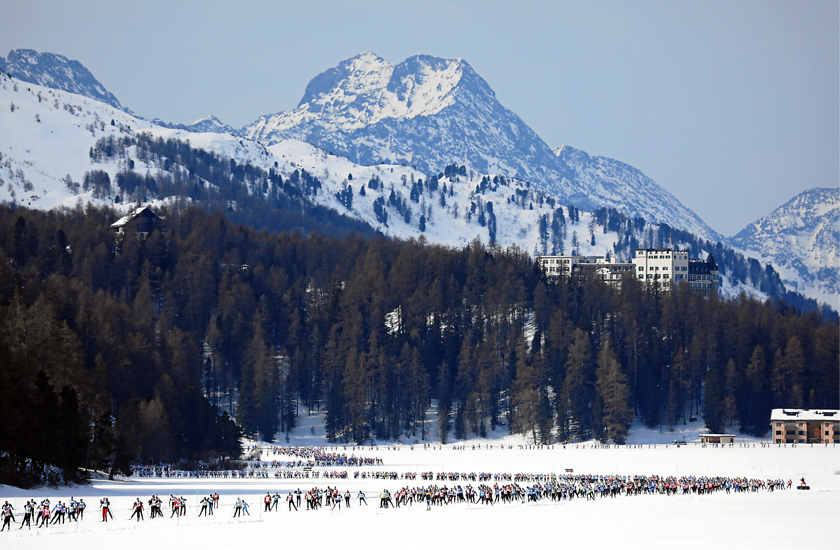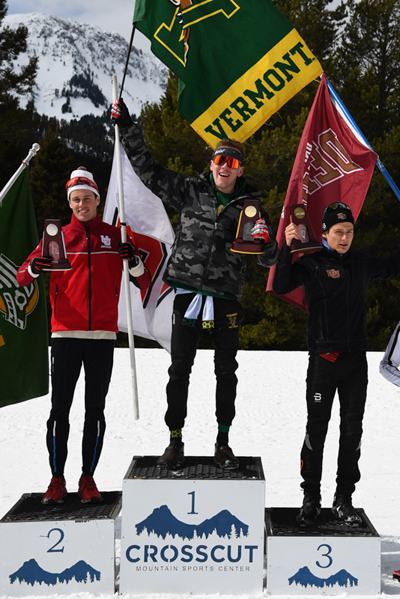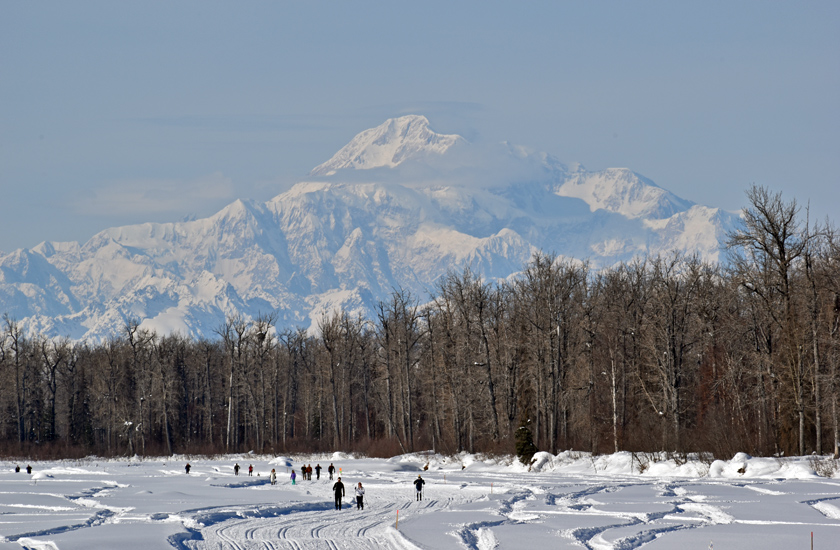The cancellations and closures began to make Nordic news at the end of last month.
On February 27, the Engadin Skimarathon, which traditionally welcomes nearly 17,000 participants to the Engadin region of eastern Switzerland, announced on Facebook it would not hold its week of annual racing—the biggest in the Alps—in early March. Only once in its 50-year history had the race been cancelled—in 1991 due to warm weather.

According to a statement on the Engadin Skimarathon’s website, health authorities of the canton of Grisons had imposed a ban against large-scale events until March 8 to help curb the spread of the novel coronavirus (COVID-19). The presence of the virus had first been confirmed in Switzerland just days earlier, reports Reuters, and on the day following the Engadin Skimarathon’s cancellation, the Swiss Federal Council met to swiftly enact a 16-day ban against gatherings larger than 1,000 people. More stringent measures have since taken place in Switzerland and beyond and have dramatically altered both life and Nordic skiing globally.
On March 4, the FIS World Cup Sprint race planned for Drammen, Norway, was held in nearby Konnerud—not due to COVID-19 restrictions but because of insufficient snow. And while the event went off smoothly, with Norway’s Johannes Høsflot Klæbo and Sweden’s Jonna Sundling winning the men’s and women’s races, respectively, the following day brought news of altered plans for the upcoming weekend’s Holmenkollen World Cup Nordic and ski jumping events: The municipality of Oslo had decided that spectators would not be allowed at the annual festival that tends to draw more than 10,000 people per day.
“We fully understand the decision that has been made, and of course we are sorry for this,” CEO of the Holmenkollen Ski Festival organizing committee Kristin Vestgren Saeteroy wrote in a statement. “The Norwegian health authorities fear [an] increase in the spread of coronavirus when spectators are traveling with the metro to the event. The metro is the main means of transportation for the event.”
That weekend—March 7 and 8—Sweden’s Frida Karlsson won the women’s 30k and Russia’s Alexander Bulshunov won the men’s 50k at Holmenkollen, the two events that were to be the final European races of the World Cup season. But they would ultimately and unexpectedly become the final races of the entire season.
While the scene within the stadium above Oslo was eerily quiet that weekend, spectators still turned out in the Nordmarka, the forest through which the Holmenkollen races pass. “The Holmenkollen stadium, which can at times boom so loudly we can’t hear our own shouts to the athletes, was a ghost town today,” Matt Whitcomb, U.S. World Cup Coach, told Fasterskier.com. “But the people did not stay home; they moved to the forest. The woods were as loud as I can remember. It was a great fan turn-out.”
Days later, stateside, the NCAA skiing championships were kicking off in Bozeman, Montana, with the women’s 5k and men’s 10k freestyle opening the first day of racing at Crosscut Mountain Sports Center on Thursday, March 12. The University of Denver’s Eveliina Piippo won the women’s race, while Ben Ogden, of the University of Vermont and sister to multi-time NCAA champion Katharaine Ogden, won the men’s race. (See the full race results from Thursday here.)
But just 30 minutes after the podium ceremony came news that the day’s racing would be last of the season: The NCAA was cancelling all remaining winter and spring championships.

“Today, NCAA President Mark Emmert and the Board of Governors canceled the Division I men’s and women’s 2020 basketball tournaments, as well as all remaining winter and spring NCAA championships,” the organization wrote in a statement. “This decision is based on the evolving COVID-19 public health threat, our ability to ensure the events do not contribute to spread of the pandemic, and the impracticality of hosting such events at any time during this academic year given ongoing decisions by other entities.”
The NCAA’s decisions was one of countless cancellations announced on March 12.
The U.S. Ski & Snowboard Association announced the cancellation all sanctioned and scheduled events beginning Monday, March 16, including the much anticipated FIS Cross Country World Cup sprint races to be held March 17 in Minneapolis, Minn. Cross Country Junior Nationals, underway at ASC Training Center in Donner Summit, California, were immediately called off.
“To all the organizers, sponsors, volunteers, athletes and every single fan that was excited to rev up their cowbells; I see you, I hear you, and I want you to know that the event being cancelled in no way diminishes the excitement and joy that your love for sport has created,” Jessie Diggins wrote on Instagram following the announced cancellation of Minneapolis’s Fastenal Parallel 45 Festival and World Cup. “Your belief and hard work has not gone unnoticed and it has made a difference, with or without the start gun going off. The fact that we were ready to race in the US has created so many opportunities for growth in sport, and we will pick up the pieces and move forward with hope that we will get another chance.”
North of the border, Nordiq Canada similarly ceased plans to hold events. The FIS Cross Country World Cup races in Canmore, Alberta—slated for March 20-22—were cancelled on March 12, as were the Canadian Ski Championships (March 25-April 2). The day before the FIS Cross Country World Cup races were to be held in Québec, Canada, on March 14 and 15, they too were cancelled.

This year’s planned Ooski Classic course was close to the heart of downtown Talkeetna, and the day of the cancelled race saw sunny skies and an atypical clear view to Denali. “It was a rare treat to get to see it so clearly and ski beneath it,” says Wright, who captured this photo from the start/finish line in the afternoon, as skiers tricked on and off the course. “Although the race was cancelled, the course was groomed and many people were there, so a large portion of racers met at the starting line at race time and skied anyway, unofficially.” [Photo] Brian Wright
Meanwhile, many Nordic centers throughout North America have closed on the heels of ski resort closures, travel restrictions and CDC guidelines that recommend cancelling events of 10-plus people. Yet in spite of being closed, some Nordic centers have continued grooming as winter persists from East to West.
So as long as a shelter-in-place order isn’t in effect, experts say it’s OK to get out and enjoy some fresh air, according to the New York Times. Just maintain your distance of a ski length or two.